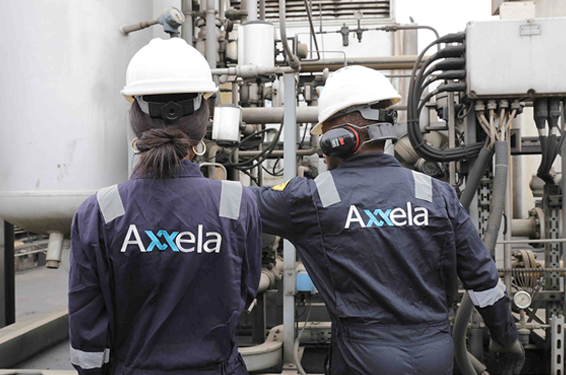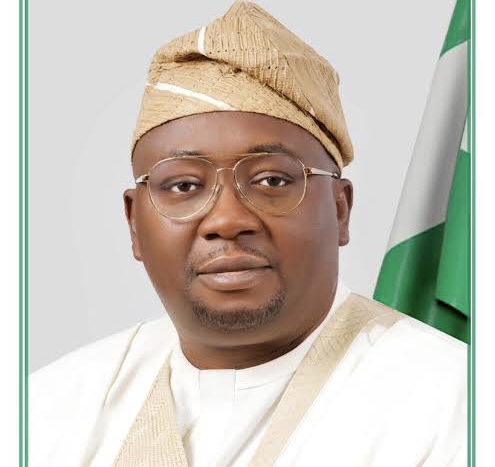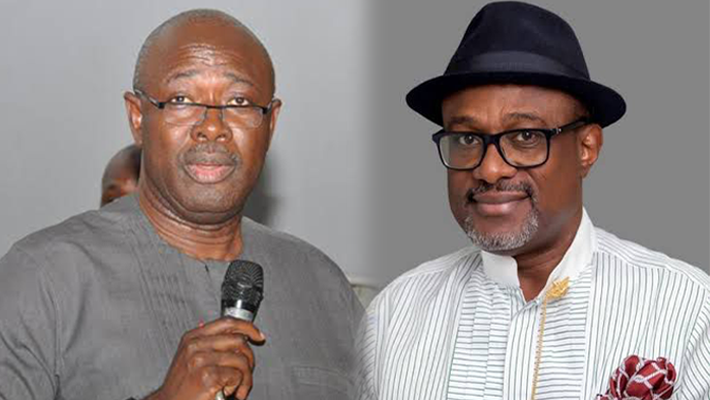Energy
Private equity firms ignore Nigeria in quest to invest in energy business
As big banks wind down hydrocarbon investment, some private equity firms that back oil and gas investments are recording an upward trajectory in the role they plan in the global energy business; a development Nigeria might miss due to multiple challenges threatening the potential of the country’s oil sector.
A new report by the US-based Private Equity Stakeholder Project showed that energy-focused private equity firms, including NGP Energy Capital Management, Pickering Energy Partners and Quantum Energy Partners have been sending articles, reports and presentations to investors highlighting the importance of oil and natural gas during the transition to renewables.
The report showed firms, which include Apollo Global Management, Blackstone Group, Brookfield Asset Management, Carlyle Group, KKR and Warbug Pincus, collectively oversee $216 billion worth of fossil-fuel assets on par with the amount of money that big banks put into fossil fuels last year.
“Private equity is buying up excessive amounts of fossil fuel assets – oil wells, pipelines, power plants, operating them out of the public eye and exploiting gaps and loopholes in regulation,” the report titled Investing in Climate Chaos said.
The private equity firms argue that the renewable energy sector cannot expand capacity quickly enough to attain net-zero emissions by 2050 without oil and gas businesses funding this global transition.
“We need to quit just focusing on replacing all hydrocarbons with wind and solar. We’ve got to ask ourselves, ‘What’s practical? What can we really do?’” said Wil VanLoh, chief executive of Houston-based Quantum. He added that the world has never experienced a complete energy transition before but instead added new sources of energy over time.
“It’s kind of make-believe to think that we can actually replace three forms of energy this time,” VanLoh said, referring to coal, oil and natural gas.
Fossil fuels will still be necessary even as the world shifts to cleaner energy, firms argue in marketing to investors.
While the above development signals an investment boom for oil-dependent countries like Saudi Arabia, it means little or nothing for Nigeria owing to industrial-scale crude theft, uncertainty and the government’s inability to fully implement the Petroleum Industry Act (PIA).
Analysts say the Nigerian government has done little to fix the vexing issues in the oil sector. It took 20 years to pass the Petroleum Industry Bill, and it has taken one year to even commence the implementation of most of its provisions.
The aspects that can be implemented are done to skirt around contentious issues. For example, the Nigerian National Petroleum Corporation has been transformed into a company from July 1 with a mandate to become commercial but it will continue to pay petrol subsidy with 100 percent of its revenue after paying salaries.
The President Muhammadu Buhari government’s inability to rein in crude theft is the biggest turn-off for investors.
Data sourced from the National Bureau of Statistics (NBS) showed foreign investment in Nigeria’s oil and gas dropped by 82 percent to a new low of $1.93million in the second quarter of 2022.
“Investment in Nigeria’s oil and gas sector is at its lowest ebb since independence,” Ola Alokolaro, partner, energy and infrastructure at Advocaat Law Practice, said.
The country’s total oil and condensate output dropped below one million bpd in August, data from the Nigerian Upstream Petroleum Regulatory Commission showed.
In early September, Italian oil giant Eni agreed to acquire two producing fields in Algeria for an undisclosed sum, including stakes in two major natural gas projects, as it plans divestments away from Nigerian onshore assets, a development that illustrates how Nigeria is losing the war to attract investments into its oil sector to smaller oil-producing nations.
For a frontier market with the population of Nigeria, oil majors not looking in its direction should be a big worry for the government as it has dire implications for social welfare and economic growth.
“Private capital flows into Nigeria, consisting mainly of foreign direct investment, have slowed, hindering the financing of much-needed infrastructure and natural resource access projects,” Buhari admitted while speaking at the Nigeria International Economic Partnership Forum on the sidelines of the United Nations General Assembly (UNGA 77) in New York.
Energy
Axxela announces to develop 50 MMSCF/D gas processing plant

Axxela Limited, a leading gas and power portfolio company in Sub-Saharan Africa, announces that it has taken Final Investment Decision for the development of a gas processing plant situated in OML 56, Delta State, South-South Nigeria.
This strategic investment marks yet another significant stride towards delivering on Axxela’s commitment to deepen domestic gas utilisation in Nigeria. The gas processing plant with a total capacity of 50 MMSCF/D will be delivered in phases.
The first phase will comprise a 12 MMSCF/D modular plant, with an interconnection pipeline network of about 4km alongside other ancillary infrastructure. The facility is expected to commence operations by the end of 2024.
Speaking on this pivotal landmark, Director of Business Development, Axxela, Franklin Umole said, “As the Federal Government continues to pursue its Decade of Gas and Energy Transition Agenda, we remain a reputable private sector partner with the capacity to develop gas processing plants aimed at tackling the longstanding challenge of gas flaring and commercialisation in Nigeria.
“We are positioning to develop requisite infrastructure for natural gas processing and last mile distribution that creates market access for at least 20% of Nigeria’s gas demand.
“Over the past two decades, we have been at the forefront of natural gas advocacy, and this project is a further reaffirmation of our dedication to gas infrastructure development and our vision to deliver innovative energy solutions across Nigeria and Africa,” he concluded.
Following the Board’s Final Investment Decision, Axxela has executed a long-term feedstock supply agreement with a leading indigenous upstream player and established equipment supply arrangement with world class Original Equipment Manufacturers (OEMs) to assure quality delivery of the project. The design concept is based on a fast and modular expansion as Axxela is partnering with OEMs who have ready stock of equipment for deployment.
The project is strategically cited in OML 56 to serve as a potential hub which upstream players with fields within a 30km radius can partner with to process associated and non-associated gas.
Axxela believes in the potential of this central processing hub having identified two prospective fields and with the partnership with the OEMs, the company envisages that the plant’s output can be scaled up to 50 MMSCF/D within 18 months.
Beyond unlocking economic opportunities, the project can potentially transform gas flaring into a valuable resource that will further ensure a stable, cleaner energy for domestic utilisation thereby contributing significantly to annual CO2 emissions savings and supporting environmental sustainability.
Upon completion, processed gas from the facility will be readily available for utilisation across various market segments including Compressed Natural Gas (CNG) for vehicles, feedstock for industries, decentralised power solutions among others.
Energy
Electricity supply: Power Minister decries activities of saboteurs, cartels


The Minister of Power, Mr Adebayo Adelabu, has decried the activities of saboteurs and cartels in the electricity sector, blaming them for the incessant power outages in the country.
Adelabu expressed this during a programme tagged “Confronting Nigeria’s Power Challenge as the Nation Migrates to a Multi-Tier Electricity Market” on Tuesday in Abuja.
The programme was organised by the House of Representatives Committee on Power.
The Minister said saboteurs and cartels perpetrated evil for their selfish interests in order to frustrate efforts at ensuring stable electricity supply in the country.
“We have saboteurs, cartels, and those who prefer to perpetrate evil for their selfish interests to frustrate our efforts,” Adelabu said.
He said all efforts must be geared towards propelling the country to the league of productive nations, adding that Nigeria was looking at reserves that would eliminate incessant power collapse.
He said the Federal Government was considering the liberalisation of the power sector.
“We also encourage the state government to invest in power generation in their states,” the Minister said.
Adelabu listed Abia as one of the states that had invested in power, adding that the Federal Executive Council (FEC) had also granted Ekiti and Enugu State the right to generate tariffs.
The Minister said it was worrisome that a lot of investors did not come with their private equity, but had to borrow money from the bank to operate in the sector.
He, however, said that with time, investors would be made to operate the right way for the benefit of the sector.
The Minister also said that FG was looking at deepening rural electrification, adding that it would be done in collaboration with the state governments.
Adelabu said there were over 100 uncompleted power projects across the country, adding that those projects would not be energy-efficient without being completed.
Speaking, Group Managing Director, Sahara Power Group, Mr Kola Adeshina, expressed the regret that Nigeria could not supply electricity efficiently in spite of its abundant gas resources.
He said if electricity was not a priority in budget provision, it would be difficult for the country to work.
Adeshina said Nigeria had the resources to double its power generation.
“If the executive brings an appropriation bill before you(lawmakers) and the power sector is not number two after defence, then don’t allow it,” he said.
He urged the government to prioritise industrial areas in power distribution.
“After the industrial areas have had light during the day, we can shift power at night to residential areas because production takes place during the day.
“Let’s sequence our investment along the line of value-added. Nigerians are resilient, we are strong, and we have tenacity. Nigerians are tired of power collapse,” he said.
Energy
Alleged $500m wasteful investments: Oil Minister dares Former NCDMB ES, vows to recoup investments


The Minister Of State For Petroleum Resources(Oil), Sen. Heineken Lokpobiri has vowed to recoup alleged investments worth over $500m made by the Nigerian Content Monitoring and Development Board (NCDMB).
The Minister made this vow in defence of his allegation that the NCDMB wasted over $500 million of the industry’s fund in equity investments in private establishments and in loans that are now non-performing.
The erstwhile Executive Secretary of the NCDMB, Engr.Simbi Wabote had earlier debunked the Minister’s statement describing it as reckless.
Wabote challenged the Minister to visit the sites of the projects the agency invested in while accusing the Minister of playing politics.
“The HMSPR-Oil is implored to visit the construction sites to avail himself of facts on ground. He should also check the MPR archives of the stategic plan to diversify oil and gas development clusters in the NigerDelta using Bonny Island, Brass Island, Onne, Ogidigben, Ibom, etc. Perhaps, this will cure his aversion to
any developmental initiative in Brass
Island and the Niger Delta in general.” Wabote said.
Reacting to Wabote’s statement, the Minister through his SA Media and Communication, Nneamaka Okafor, described Wabote’s claims as blatant lies from the pit of hell.
The Minister’s response reads: ‘’Our position is that he who alleges must prove same. So, if Mr. Wabote has proof of such conversation, he is challenged to provide same.”
‘’Secondly the Minister has no aide called Blackson. All his aides were duly selected in line with extant laws and have documents to that effect.”
‘’The Minister in his capacity as chairman of the Governing Council stands by his statement at The Petroleum Club’s quarterly event in Lagos, and as journalists I welcome you to visit the places mentioned to verify the allegations for yourself.”
‘’Thirdly, the said Atlantic Refinery was supposed to be built in Mr Wabote’s home town, he should show Nigerians where that refinery is.”
‘’Fourthly, the Brass Fertilizer and Petrochemical company was also paid for, you are welcomed to also visit the site to verify the facts for yourself.”
‘’Let me add that these revelations are not new, they were first made during an investigative hearing of the House of representative committee on local content. Again the records are there and you are welcome to verify these facts.”
‘’The Minister has never been part of any budgeting process of any parastatal under the Ministry, you are welcomed to visit these agencies to verify for yourself.”
‘’Finally, the Minister’s office is run with a budget superintended by the permanent secretary and so one will wonder, how the Minister will ask another entity to make provisions for the budget of his Office. The Minister has an impeccable record from his time as Minister of Agric and will continue to stand for the truth.”
‘’I have had course to read Mr Wabote’s release and every one can see that he is still nursing the wounds of being replaced even after spending seven years at the Board.At best, this is a clear case of when you fight corruption, corruption will fight back.” The response read.
The Minister also diaclosed that investigations are ongoing while making a vow to recover the resourced expended.
-
Finance3 months ago
Court orders Sen. Victor Umeh to repay N136m bank debt to AMCON
-



 Abuja Update2 months ago
Abuja Update2 months agoUNDP, FG partnership needed to achieve inclusion, equity- Minister
-
Abuja Update1 month ago
Banks drive stock market performance with N147bn gain
-



 Infotech4 weeks ago
Infotech4 weeks agoWorld Backup Day: NITDA urges Nigerians to ensure backup of data
-
capital market2 years ago
Rt.briscoe, FBNH, Others halts negative performance of stock market
-



 Health3 weeks ago
Health3 weeks agoImmunisation: FG, GAVI seek synergy with Sokoto Govt.
-



 Health1 week ago
Health1 week agoCapacity training will reduce migration of health workers- NPHCDA
-
Infotech2 weeks ago
Forex for Beginners: Unveiling the currency exchange and how to trade it




